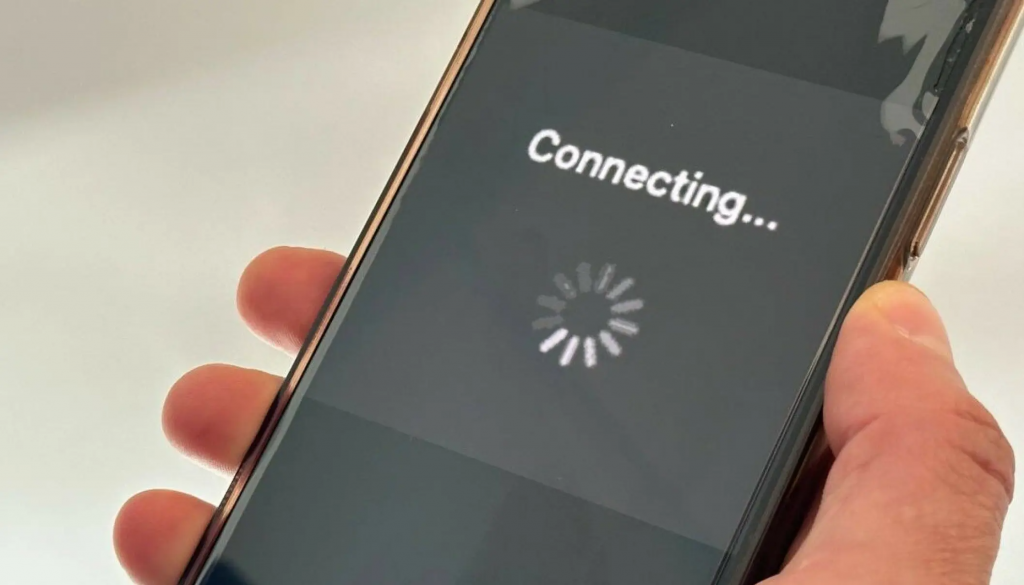Northern Russia troubled by mobile internet shutdowns

By Georgiy Chentemirov
Officials pretend that everything is under control, but it is not. People are losing the ability to earn money, buy goods and services, and even receive medical care. A new reality for northerners: the threat of drones, cancelled flights at airports, and the collapse of the digital environment – probably the only tangible achievement of the Putin era.
“We have noticed that many of you have started going out less often. But we have great news to lift your spirits! We invite you to our café! We not only have delicious food but also free Wi-Fi! Enjoy aromatic dishes while staying connected to the world!”
This advertisement was placed in mid-August by one of the establishments in Syktyvkar, the capital of the Komi Republic. As they say, a crisis is a time of opportunity when you need to use any advantages. And in Russia in 2025, having a router is already a serious competitive advantage.
Mobile internet outages began in Komi in the summer, but the peak of shutdowns occurred in mid-August when, for the first time since the start of the full-scale war, a Ukrainian drone reached the region.
There are similar stories in neighbouring regions: mobile internet disappeared in Karelia, Murmansk, and Arkhangelsk regions.
In Ukhta, for example, at the time of writing this text, there has been no mobile internet for 11 days. With an unflinching hand, officials are sending the subordinate population, if not to the Stone Age, then somewhere towards the 1990s.
Here is a story shared on her personal page by Natalia Koneva from Yemetsk in the Arkhangelsk region:
“We went to the shops. You can’t pay with a card without the internet. Neither bonuses nor pensions work. Local entrepreneurs sold products, but for cash. Not everyone had it, as you understand. There is a Sberbank branch here. Everything worked there. The ATM dispensed cash for a while, as long as there was money…
It was possible to withdraw money from another bank’s ATM, but with a commission. There was no internet for almost three days! My husband bought some products in a local shop on credit. This is only possible in a village and under the seller’s responsibility. The record was several pages long!
When the internet was restored, we went to “Magnit”. The shelves were surprising… Canned goods, cheap cereals by the packet on the remnants… Does it remind you of anything?! Yes, there are dairy products, sausages, cheese, and much more. But what is needed every day was taken,” Koneva wrote from the village of Yemetsk.
“Without GSM, you can’t find anything”
Natalia Koneva, one might say, got off lightly. For some, having mobile internet is literally a matter of health.
“In our village, there is no cable [internet]; yes, probably not only with us. In my family, there is a child with a rare disease, and every month I send tests, and [we] consult with doctors. But this is all in St. Petersburg, and for this, you need the internet,” writes Anna Surzhan from the Karelian village of Ladva.
My child is six years old, and he has a speech disability. He needs educational cartoons, he needs to study. The specialist doctors are in Murmansk, and we keep in touch with them through messengers. I need to take my child to an appointment, but there’s no communication with the doctors!”
– says Natalia from the city of Apatity.
The shutdowns have struck society hard, which in recent years has come to enjoy high digitalisation. “I feel like dying” – this is how one resident of Syktyvkar responded to a question about how she is living without mobile internet. Payment terminals in buses and shops are not working; taxi drivers cannot accept orders, and if they can, they don’t know where to go (navigation via smartphone with internet); banking and government service apps are not working; and so on.
“Kind people! Please share taxi phone numbers, I urgently need to get to the airport,” – writes a resident of Murmansk in the comments to one of the posts on Telegram.
“I’m a courier, and I’m 20 minutes late because without GSM you can’t find anything,” – writes another user.
“The cash register didn’t work, I had to look for cash to pay for the repair of brake discs and pads,” – says another.
“Due to the disconnection of mobile internet in Syktyvkar, we are forced to suspend the operation of our ‘smart’ refrigerators, as the terminals do not accept payments,” informs the vending company to its clients.
The former business ombudsman of the Murmansk region, Maxim Belov, called the disconnections a blow to business. The ex-official explained that many products today are certified through specialised information systems, and without the internet, they cannot be sold, even for cash.
Related stories from around the North :
Canada: Why starlink is being called a ‘game-changer- in many N.W.T. communities, CBC News
Norway: New satellites to boost communications in Arctic Norway, The Independent Barents Observer
Russia: Russian military to get fast, secure internet through trans-Arctic cable, The Independent Barents Observer
United States: $30.3 million grant announced to build up high-speed internet in rural Alaska, Eye on the Arctic



